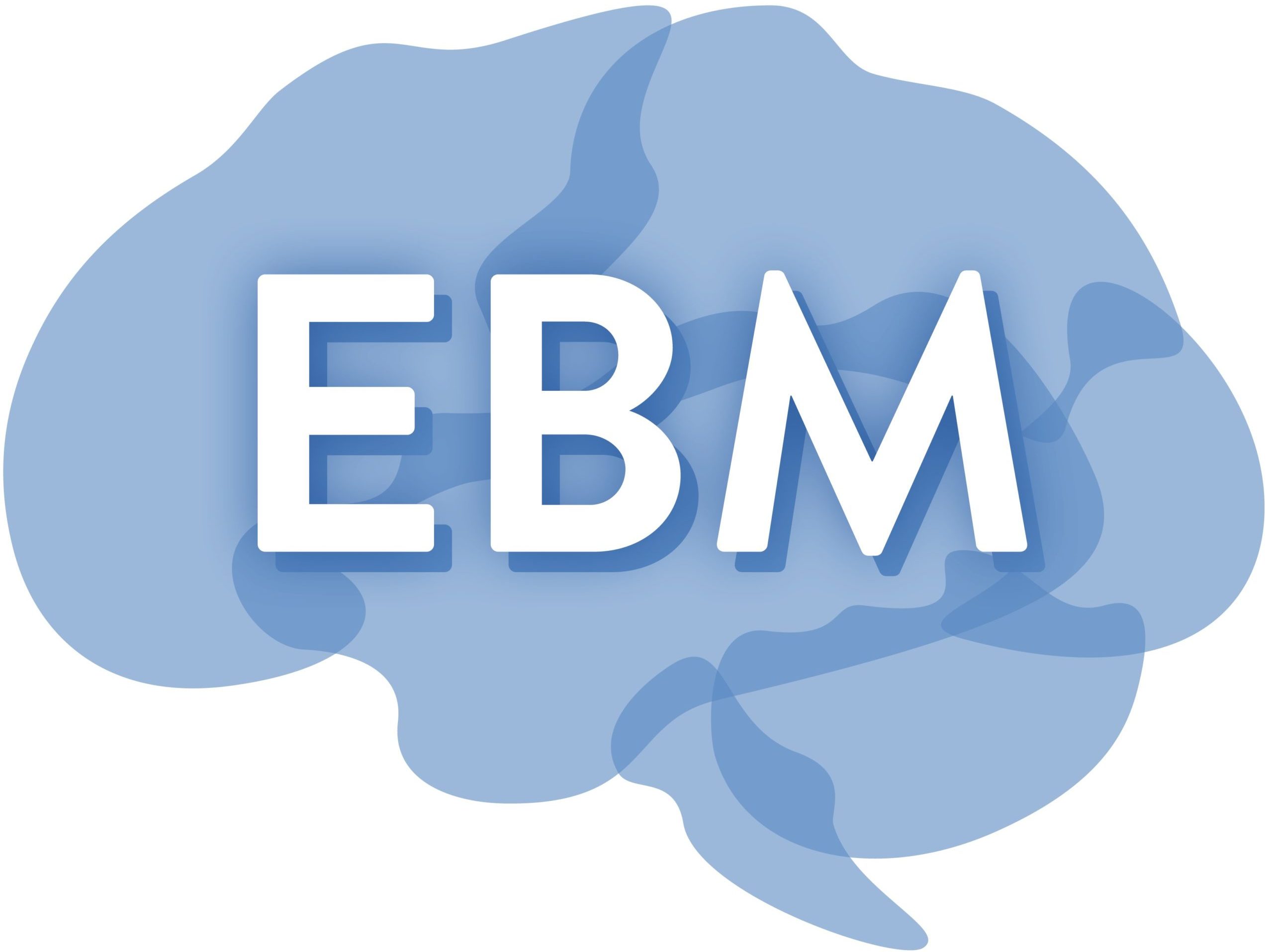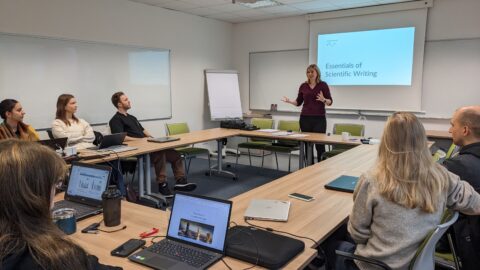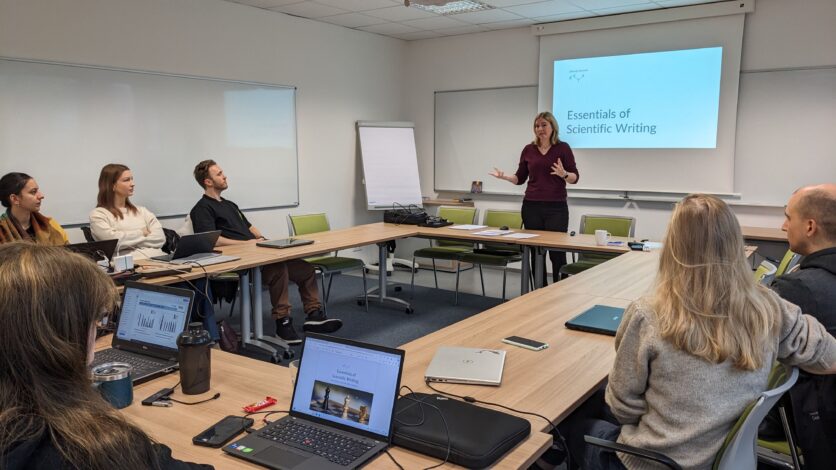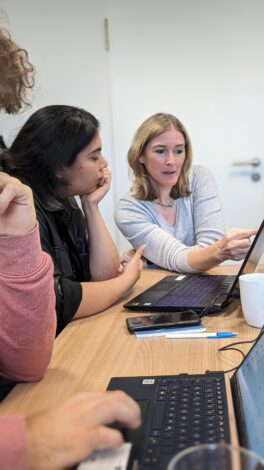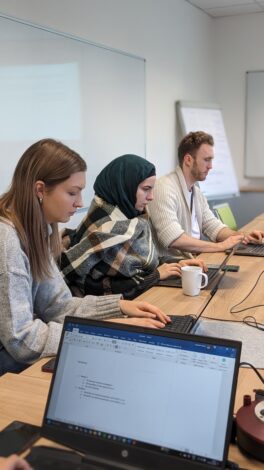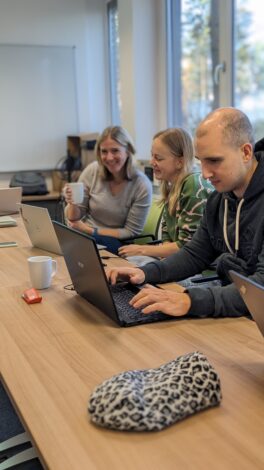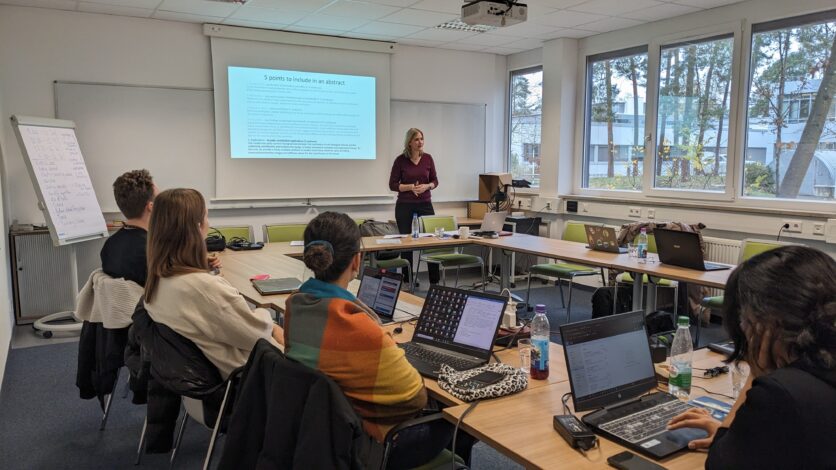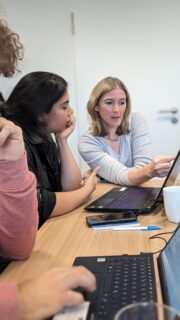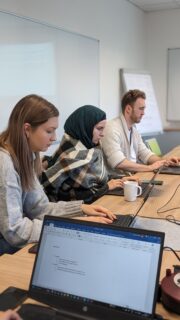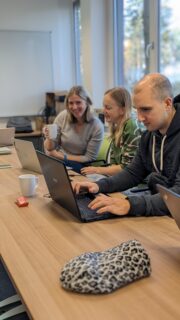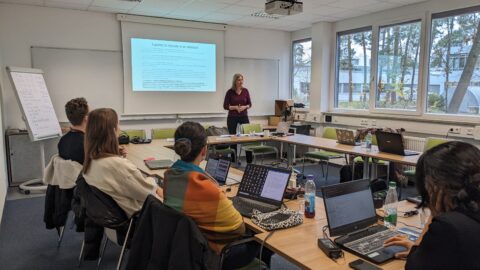Maximizing Publication Potential: A Scientific Writing Workshop for Doctoral Researchers
As part of the iRTG qualification program, the EBM doctoral researchers participated in the soft skills seminar “Maximizing Publication Potential: Essentials of Scientific Writing” on November 21 and 22, 2024. The seminar, led by lecturer Deborah Bennett, provided an in-depth exploration of the key principles and strategies for crafting compelling scientific texts. Through several sessions, the participants learned how to organize ideas coherently and tailor their writing to engage and inform their target audience.
The seminar began with an overview of foundational concepts, including the different genres of scientific writing, their purposes, and common challenges researchers face when writing. Participants were introduced to practical strategies for overcoming these challenges and achieving professionally written texts. The sessions also addressed the general structure of a scientific publication, helping participants build a solid understanding of how to present their work logically and effectively.
A unique aspect of the seminar was its hands-on approach. Under the lecturer’s guidance, the participants constructed a scientific publication based on their own data from the ground up. This step-by-step process covered all essential stages, starting with identifying the core message or story of their research and moving on to formulating precise, informative, and engaging titles. The researchers also practiced constructing clear and captivating abstracts, describing their results with clarity and flow, and discussing their findings in ways that highlighted their significance and situated them within the broader scientific context. Each stage was accompanied by practical exercises, useful tips, and suggestions to help participants refine their skills.
In addition to these core elements, the seminar focused on enhancing the readability and flow of the scientific texts. Participants explored strategies to avoid the overuse of passive voice and maintain a dynamic and engaging style. Attention was also given to polishing figure captions, ensuring that visual aids were clear, concise, and effective. Throughout the seminar, the emphasis was placed on precision in language, encouraging the researchers to express their ideas accurately and professionally.
The “Essentials of Scientific Writing” seminar significantly improved participants’ confidence and competence in scientific communication. The insights and skills gained are expected to contribute to the creation of high-quality, impactful publications while supporting the researchers’ academic and professional development as they pursue their doctoral work.
Sonja Kuth, X03
